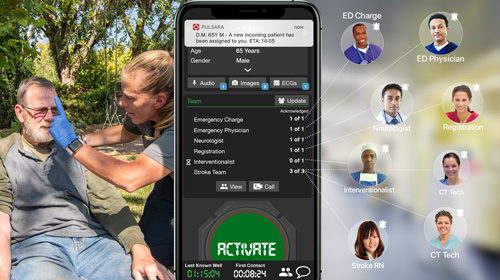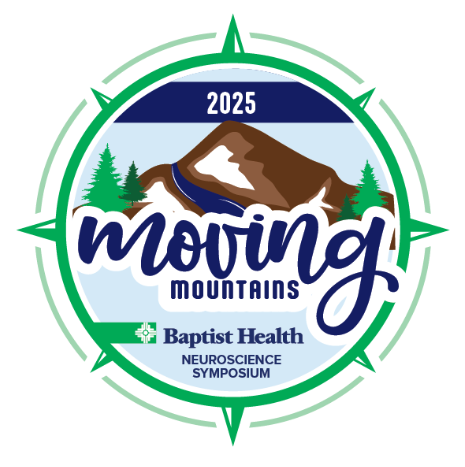Speed Time to Treatment
With Pulsara, EMS can pre-alert the ED, giving hospital teams access to helpful information they can use when the patient arrives. Everyone is on the same page, with the same information, even as the case evolves.
Ready to learn more? Fill out the form above to meet with our team during the Baptist Health Neuroscience Symposium, and download the case study to learn how teams at Baptist Health decreased treatment times by 42%.

Why Attend the Symposium?
The Baptist Health Neuroscience Symposium is designed to provide education on evidence-based practice knowledge across the continuum of care. This event is aimed at assisting with education requirements for nurses, physicians, providers, physical therapists, occupational therapists, speech therapists, pharmacists, EMTs, and other healthcare providers who care for the neuroscience patient.

Why ELSE Should You Attend?
Because Pulsara Will Be There!
While Pulsara unites all care team members within and across organizations for any patient event and every method of arrival, learn more about Pulsara below and stop by our table during the conference to see the platform in action.
Baptist Health Medical Center - North Little Rock began using Pulsara to improve communication around stroke cases. The results?
- 42% decrease in average DIDO time for stroke transfers
- EMS pre-alerting with Pulsara saves time for hospital staff
- Integration with RAPID AI allows fast review of patient scans
- Access center uses Pulsara for smoother transfer process
How does Pulsara work in action—when every second counts and patient outcomes are on the line? Watch this live-action retelling of how AMR and UCHealth use Pulsara to support a stroke patient—from the initial 911 call to EMS evaluation and transport to hospital care and case closed.




